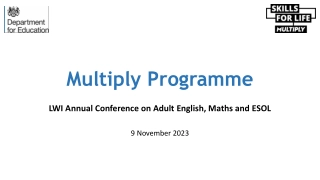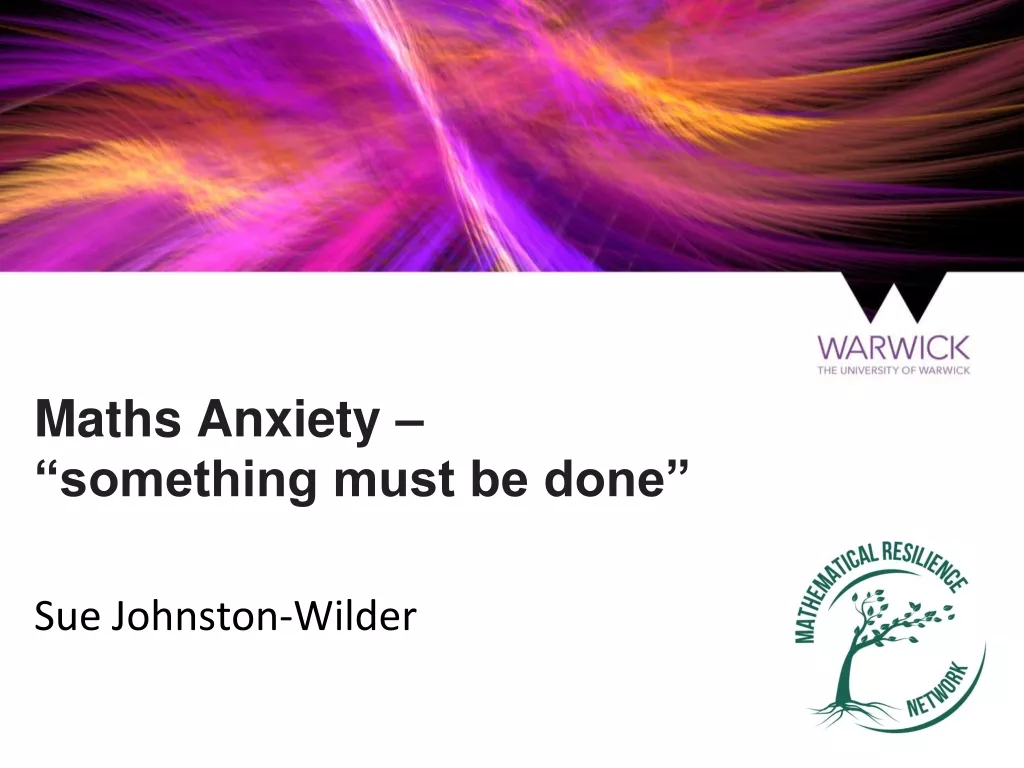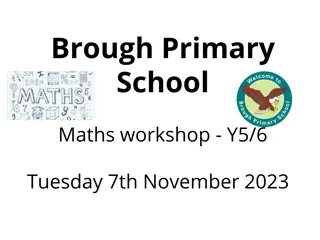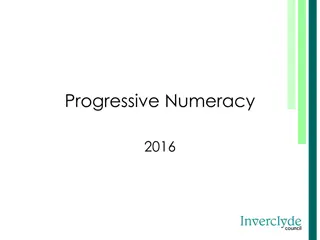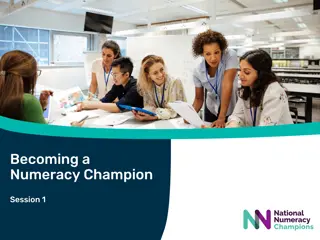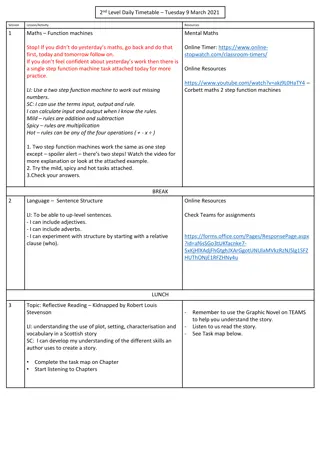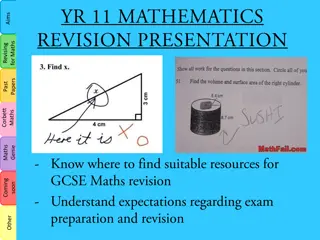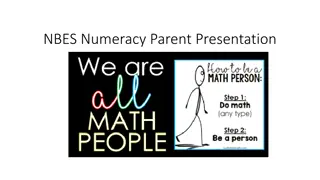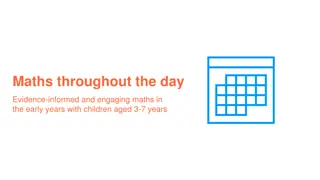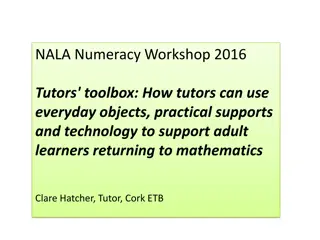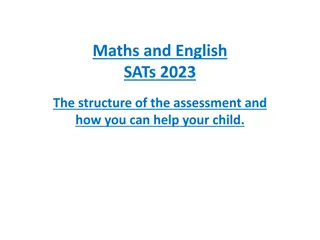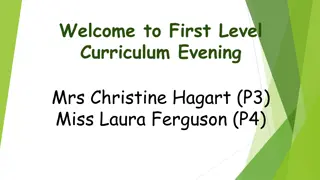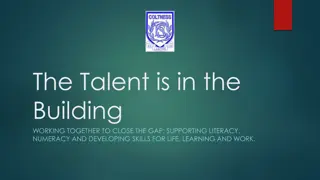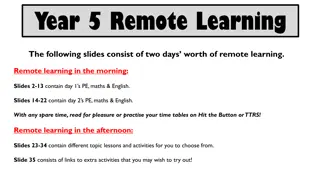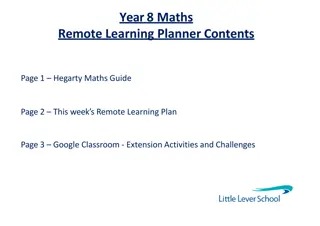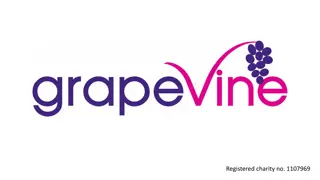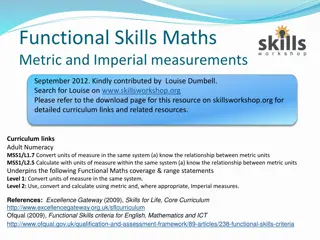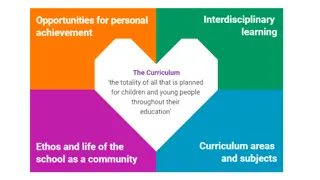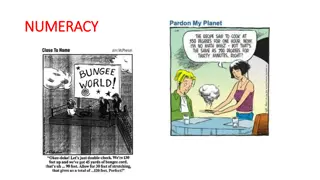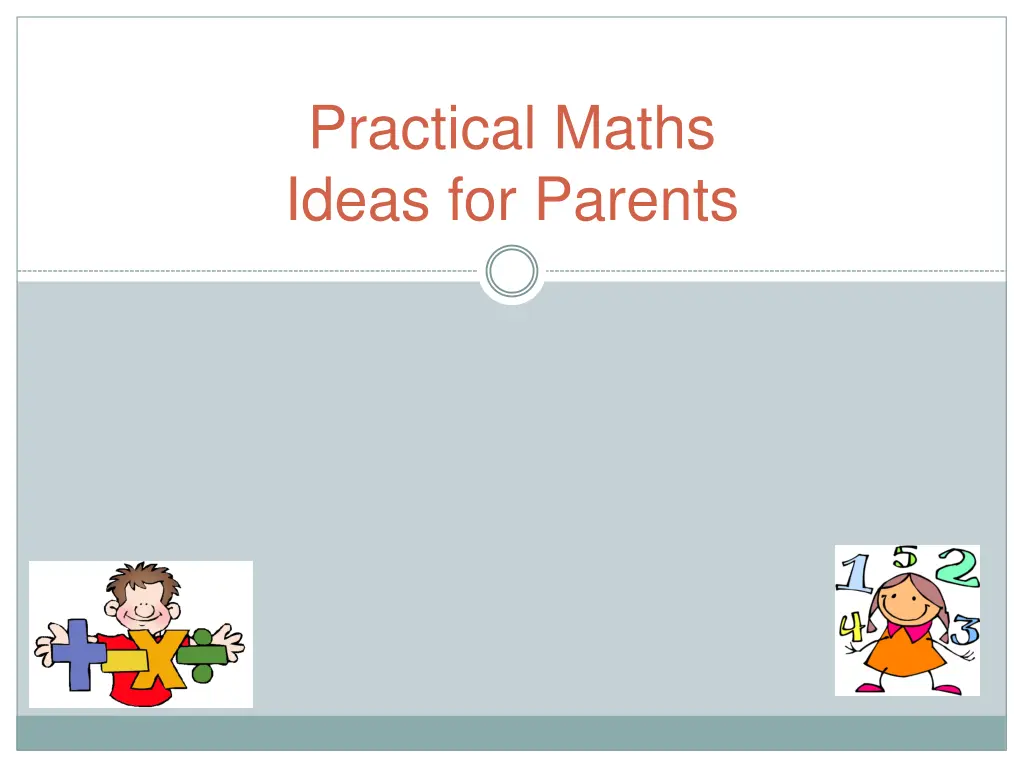
Practical Tips for Parents to Enhance Math Skills in Children
Explore practical math ideas for parents to engage children in learning numbers, money, measurement, shapes, and more. Encourage hands-on activities and games to make math fun and interactive.
Download Presentation

Please find below an Image/Link to download the presentation.
The content on the website is provided AS IS for your information and personal use only. It may not be sold, licensed, or shared on other websites without obtaining consent from the author. If you encounter any issues during the download, it is possible that the publisher has removed the file from their server.
You are allowed to download the files provided on this website for personal or commercial use, subject to the condition that they are used lawfully. All files are the property of their respective owners.
The content on the website is provided AS IS for your information and personal use only. It may not be sold, licensed, or shared on other websites without obtaining consent from the author.
E N D
Presentation Transcript
Practical Maths Ideas for Parents
Number and Number Processes Numbers are everywhere in the environment, point them out to your child wherever possible: Number songs 1,2,3,4,5 once I caught a fish alive 5 little ducks went swimming one day, 10 green bottles Give your child opportunities to count a range of objects coins, pasta shapes, buttons Try counting things you can t touch lights, window panes Play games that involve counting e.g. snakes and ladders, dice games, games that involve counting objects.
Money Set up a shop using items from around the house. Pupils could label their toys and then pay for them using real coins. When shopping look at price labels and talk about them. Demonstrate different ways to make amounts e.g. is the same as
Measurement and Estimation Your child will be measuring and estimating in non standard unite e.g. hand span, cubes for length, a cup for volume. How many cups will it take to fill this pot? How many giant steps/ baby steps will it take to get to the bottom of the garden? Which item is the heaviest/ lightest, longest/ shortest? Estimate how many grapes are in the bowl. Now can you count them?
Shape, Position and Movement Play a blindfold game/ hide and seek/ treasure bag game when you hold a shape behind your back and describe it. 2D shapes square, rectangle, triangle, circle (describe number of sides and corners) 3D objects cube, cuboid, cone, cylinder and sphere (describe faces -flat, curved, number and what shapes it is made up from.
Shape, Position and Movement Encourage your child to describe the position of objects, it s behind the chair It s next to the chair Can they give and follow directions to get to an object Go forward step to the right
Money At this stage of the mathematics programme your child will be working with the following notes and coins 1p, 2p, 5p, 10p, 20p, 50p, 1, 2, 5 Go shopping with your child to buy two or three items. Ask them to work out the total amount spent and how much change you will get. Give them an amount e.g. 54p. Can they give change from 1, 5, 10. Can they give as many ways as possible to make 72p.
Properties of 2D shapes Look for 2D shapes within tiling patter Go on a right angle hunt Notice symmetry in nature
Real Life Problems Practise measuring the lengths or heights of objects (in metres or cm). Help your child to use different rulers and tape measures correctly. Encourage them to estimate before measuring. Let your child help with cooking at home. Help them to measure ingredients accurately using weighing scales or measuring jugs. Talk about what each division on the scale stands for. Choose some food items out of the cupboard. Try to put the objects in order of weight, by feel alone. Check by looking at the amounts on the packets.
Time I can tell the time using 12 hour clocks, realising there is a link with 24 hour notation, explain how it impacts on my daily routine and ensure that I am organised and ready for events throughout my day. Practise telling the time with your child. Use both digital and analogue clocks. Be aware and teach the various ways we speak of time. Analogue half past three, digital three thirty. When you are out and about ask pupils to read clocks that they see in supermarkets, banks and train station. Can they give the equivalent digital time? Ask your child to be a timekeeper (e.g. tell me when it is half past four because then we are going swimming).
Number and number processes In this part of the mathematics programme, your child will be: Counting, reading, writing and ordering whole numbers up to 100 000. Reading and writing numbers up to one million Extending work on fractions to include twentieths, fiftieths, and hundredths. Calculating equal fractions and decimals. Recording money and measurement to 2 decimal places. e.g. 105p = 1.05 152cm = 1.52m
Money At this stage of the mathematics programme your child will be working with the following notes and coins in a variety of calculations 1p, 2p, 5p, 10p, 20p, 50p, 1, 2, 5, 10, 20 With your child, use different combinations of coins and notes to make totals of up to 20 Use catalogues to spend money up to 100 Give them the budget for buying the family lunch or a take away meal. Can they calculate the total cost. Think of the different combinations of notes and coins to pay the bill, receive change.
Number, Money and Measurement Ask your child to write you a cheque for the week s lottery win. Share the lottery winnings between the family. E.g. 1/4, , 1/3. Look for sale prices in shops, magazines and newspapers. Work out the prices for 50% off, 25% off. Measure the family s heights in centimetres and change to decimals.
Time In this part of the mathematics programme your child will be: Using and comparing 24 and 12 hour clock time Reading 24 hour timetables Calculating lengths of time in hours and minute, mentally if possible Using a stopwatch to time activities in seconds Calculating speeds in practical activities. Activities Can your child use 24 hour times to set the video to record TV programmes? Look at bus or train timetables with your child. Ask them to work out the length of different journeys. Ask your child to set a digital alarm clock to wake the family in the morning. Work out the length of film and TV programmes.
Useful Websites Curriculinks Read Write Count Education City http://www.hallgreeninfant.co.uk/cms/media/Ed%20City(8).jpg

